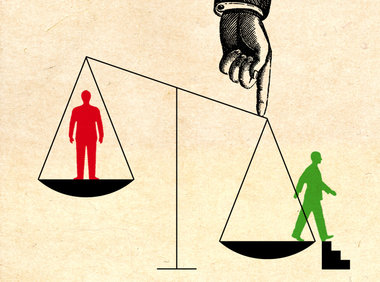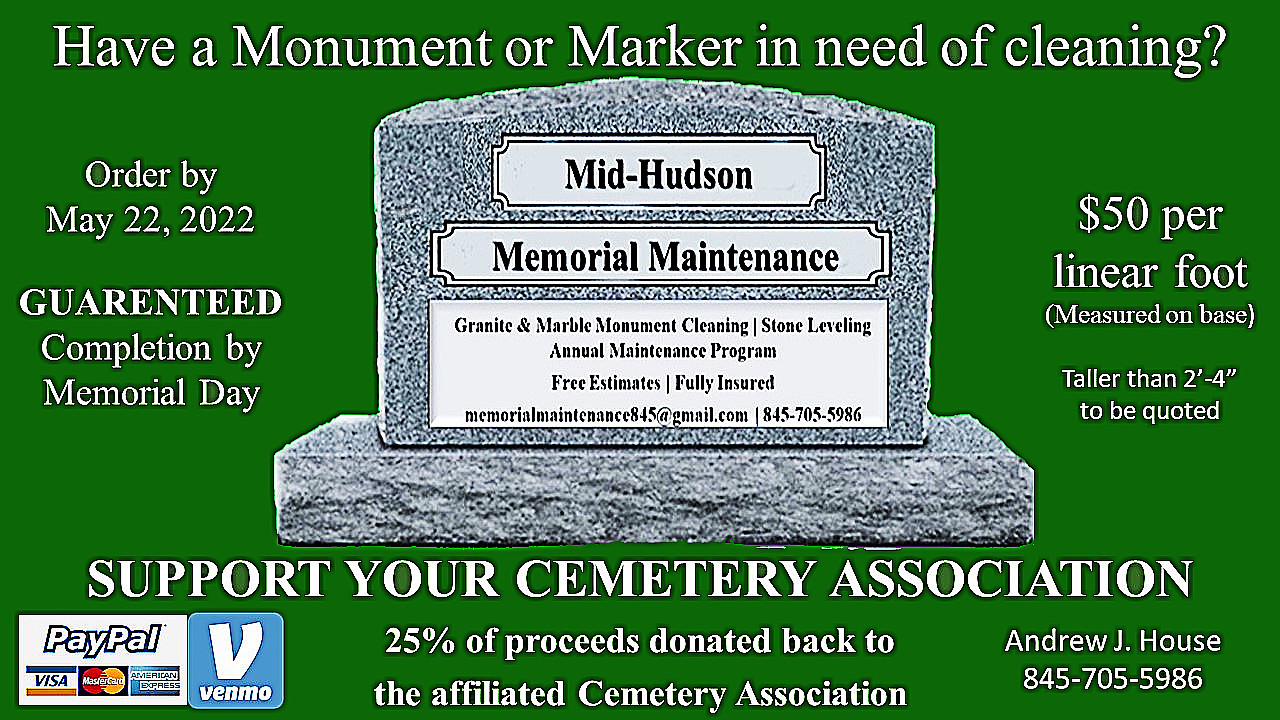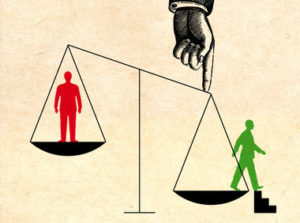In the Face of Federal Targeting of Immigrants, 18 Pardons Granted to Immigrants Facing Deportation and Immigration-Challenges
39 Conditional Youth Pardons Granted
Commutations Granted to Individuals Dedicated to Community Violence Prevention
Governor Andrew M. Cuomo today issued pardons to 18 individuals who are contributing members of society and face the threat of deportation and other immigration-related challenges as a result of previous convictions, pardons to 39 individuals who committed misdemeanors and non-violent crimes when they were 16 or 17 years old and have been crime free for 10 years or more, and commutations to two individuals who have demonstrated substantial evidence of rehabilitation and a commitment to community violence reduction.
“These New Yorkers have proved their rehabilitation, in some cases for decades, but have been unable to gain legal status or fully reenter society due to the stigma of conviction,” Governor Cuomo said. “While the federal government continues to target immigrants and threatens to tear families apart with deportation, these actions take a critical step toward a more just, more fair and more compassionate New York.”
Immigration-Related Pardons
In the face of the federal government’s increased targeting of immigrants, Governor Cuomo today issued pardons to the following individuals to reward their rehabilitative efforts and to remove the barriers that their criminal records present to their immigration status. Some are facing deportation, while others wish to be able to participate in their communities as citizens of the country they call home. In each case, a pardon will make immigration-related relief possible, if not automatic. Every recipient has given back to their communities and families in a variety of ways, and has demonstrated a substantial period of crime-free, good citizenship.
Lorena Borjas, 57, was convicted of Criminal Facilitation in the Fourth Degree in 1994, as a result of being entrapped as a victim of human trafficking. Ms. Borjas, a transgender woman from Mexico, has since become a strong advocate for transgender and immigrant communities across the country, running HIV testing programs for transgender sex workers, and syringe exchange programs for transwomen taking hormone injections. She currently works as an educator at community health centers across New York City, and has received commendations from elected officials, advocates, and community members, including New York City Public Advocate Letitia James. With this pardon, she hopes to obtain citizenship and avoid deportation, in order to effectively continue her advocacy work here in New York State.
Alexander Shilov, 35, was convicted of Petit Larceny and Attempted Petit Larceny, from 2000 to 2004. As a teenager, newly immigrated from Estonia, the son of a hard-working single mother, Mr. Shilov developed a drug addiction leading him to commit the string of misdemeanors that now jeopardize his ability to stay in this country. For the past 13 years, Mr. Shilov has remained sober, and has worked his way from obtaining his GED to becoming a distinguished nurse at a Brooklyn long-term managed care provider. Additionally, Mr. Shilov frequently gives talks on overcoming addiction at hospital detox units, volunteers as a nurse in New York’s Medical Reserve Corps, and provides bilingual services in his Russian-speaking community. A pardon will allow him to fight his current Order of Removal and pave the way for citizenship so that he may continue building a life with his fiancée and two infant children, and continue to support his elderly mother.
Freddy Perez, 53, was convicted of Criminal Sale of a Controlled Substance in the Third Degree and Attempted Criminal Sale of a Controlled Substance in the Third Degree in 1993. Since then, he was worked as an electrician and has taken care of his autistic younger brother. Mr. Perez is an immigrant from the Dominican Republic and hopes to adjust his status to that of citizen. With a pardon, he can achieve this goal, as well as exercise guardianship over his brother.
In addition to these three recipients, 15 additional pardons were granted to New Yorkers convicted of non-violent crimes, who have lived crime-free for 10 years or more, and whose convictions have jeopardized their legal ability to reside in this country. These pardons will grant a chance at American legal residency to those who are parents of young children, caregivers to elderly parents and disabled spouses, small business owners, community board members, civic leaders, and those with serious health conditions, all productive people working for the betterment for those around them. For those facing deportation, while a pardon may not automatically remove the grounds of removal, it is a necessary predicate to regaining the right to remain here in the country they call home.
Nick Turner, President of the Vera Institute of Justice, said, “All of us at Vera commend Governor Cuomo for using his Constitutional power of clemency to act on behalf of our deserving neighbors. Too many immigrants with prior criminal convictions are subjected to the gratuitous punishment of deportation, despite being longstanding contributing members of our community. Too many individuals remain in prison despite a demonstrable change and growth. In this strong display of leadership, the Governor is helping to reshape a criminal justice system centered on restoration, and that ultimately prioritizes the safety and dignity of all New Yorkers.”
Anthony Thompson, Faculty Director of the Center on Race, Inequality and the Law at New York University School of Law, and Clinical Professor of Law, said, “I commend Governor Cuomo for using his Constitutional power of clemency to take on some of the critical issues of the day. Deportation is an out-size punishment for prior criminal convictions when people serve their sentences and go on to become longstanding, law abiding, contributing members of society. By using his pardon power to save individuals from this fate, the Governor is doing what he can to balance public safety and justice for immigrant New Yorkers. The Governor is likewise taking on the issue of mass incarceration by recognizing that individuals who rehabilitate themselves do not need to remain in prison. Granting commutation to these individuals creates an incentive for others to likewise transform themselves, which makes for a safer environment.”
Alina Das, Co-Director, Immigrant Rights Clinic at New York University School of Law said, “All New Yorkers deserve an opportunity for redemption and second chances. By granting these pardons, Governor Cuomo offers hope to immigrant New Yorkers who would otherwise face a devastating double punishment of deportation after already paying their debt to society.”
The Governor also granted two pardons for purposes other than immigration-related relief.
Christopher Cavallo, 66, was convicted of criminal sale of a controlled substance in the third degree in 1977. He has been crime free since that time — the past 50 years — and has built a successful career in the security field. He owns a licensed security agency in Florida, and is active in charitable endeavors, including running a 12-step addiction recovery program for seven years in a women’s prison in Florida, and supporting a shelter for children with HIV and cancer in Bogota, Colombia, where his security firm has an office. Mr. Cavallo seeks a pardon to be able to run for public office in Florida, and to get an advanced security license in order to grow his business.
Mary Snook Downing, 58, was convicted of possession of stolen property and unauthorized use of a motor vehicle in 1987. Downing began using drugs to manage her depression after suffering the unexpected loss of both her husband and son in 1985. After her conviction, she entered rehab at Arms Acre Rehabilitation and has maintained her sobriety and remained crime free ever since. She seeks a pardon to petition for legal guardianship of her 88-year mother who resides in a senior park in Florida and suffers from dementia.
Youth Pardons
Through the Youth Pardon Program, launched in 2015, Governor Cuomo today issued conditional pardons to 39 deserving New Yorkers convicted at age 16 or 17 of crimes, including misdemeanors and non-violent offenses. All 39 recipients have proven themselves to be positive, contributing members of their communities. These pardons will remove barriers to employment and community-involvement opportunities. Expanding upon the 101 youth pardons issued in the program’s first announcement in 2016, the Governor has now granted a total of 140 conditional pardons through this initiative. As the result of Raise the Age legislation which took effect earlier this year, many individuals who may have previously applied for a youth pardon are now able to go a step further and seal their past convictions, which is reflected in the drop in the number of youth pardon applicants.
Commutations
Governor Cuomo today commuted the sentences of two individuals who have demonstrated a substantial evidence of rehabilitation and dedicated their efforts to the work of violence interruption. They will return to their communities and serve as an essential resource to reach others with their message of turning from violence. One of these individuals was represented by pro-bono counsel through the Governor’s 2015 initiative to match clemency applicants with pro-bono counsel. In August 2017, the Governor announced a partnership with the National Association of Criminal Defense Lawyers and Families Against Mandatory Minimums, which greatly increases the number of attorneys volunteering to prepare applications.
Michael Flournoy, 42, has served 21 years of a 25 to 50-year sentence for Attempted Murder in the 2nd Degree and other charges. He has a strong record of rehabilitation and volunteer service, and, since his incarceration, has cultivated a deep friendship with the victim and her son who now consider him a member of their family. Flournoy is a New York State Department of Labor certified AIDS/HIV counselor and has logged hundreds of hours of training and facilitation as the volunteer program coordinator of the Prisoner’s AIDS Counseling and Education Program. Mr. Flournoy earned Associate’s and Bachelor’s degrees from Bard College, where he served as the commencement speaker in 2009, and a Masters of Arts from the New York Theological Seminary. Mr. Flournoy will live with his wife and daughters in Brooklyn where he will continue his work in violence prevention.
Dominic Dupont, 39, has served more than 20 years of a 25- to life sentence for Murder in the Second Degree and Criminal Possession of a Weapon in the Second Degree. The charges stem from a fight involving two groups of young men in which Dupont, 19 years old at the time, was defending his twin brother. While incarcerated, Dupont has repeatedly expressed remorse for his actions and has excelled as a leader and mentor to his peers and the community, serving for the past nine years as the director of the Youth Assistance Program, a volunteer group dedicated to guiding youth at risk of justice system involvement onto a better path. He has also served as a lead facilitator in violence-alternatives programming and reentry counseling. Mr. Dupont will return to his wife in Brooklyn and continue his career as an at-risk youth counselor.
Thomas Griffin, Superintendent of Green Haven Correctional Facility, said, “Dominic Dupont has not only met but exceeded the requirements for consideration for Executive Clemency. In the time I have known him he has displayed personal growth and through his actions demonstrates positive leadership qualities and behavior for other inmates. Dupont has been a facilitator for our Youth Assistance Program helping to motivate at risk High School students. He has also earned his Associate’s Degree during his incarceration. Dominic Dupont has proven that he is ready for the opportunity to prove himself to society.”
Kathrina Szymborski, of Patterson Belknap, which represented Mr. Flournoy’s clemency application as part of the pro bono clemency partnership, said, “Michael Flournoy has served his sentence in an exemplary manner and deserves to return to his family and community. Given the incredible strides he has made to rehabilitate himself-including through education, therapeutic programs, and volunteer work-his further incarceration would have served no purpose. We, along with our partner New York County Lawyers’ Association, are very pleased that Governor Cuomo is committed to using his clemency power to advance justice and mercy.”
Anthony Annucci, Acting Commissioner of the State Department of Corrections and Community Supervision, said, “The ends of justice are also served when mercy is bestowed on those individuals who have proven themselves truly worthy. I commend Governor Cuomo for generously exercising this extraordinary power which will also serve as a strong incentive for other inmates to prove themselves truly worthy.”
Julio Medina, Executive Director of Exodus Transitional Community, said, “I have personally worked with each of the individuals receiving a commutation today, and have witnessed their power as positive role models both inside and outside of the prison. I am proud of Governor Cuomo for recognizing the transformation that these exceptional men have worked so hard to accomplish. Our community will be a better, safer place with them in it.”
Soffiyah Elijah, Executive Director of the Alliance of Families for Justice, said, “Thanks to Governor Cuomo for exercising his power of clemency to release incarcerated people who have become positive role models to other incarcerated people and to the community, sending a strong message that transformation is possible. That message will inspire other incarcerated people, and the families who love and support them.”
JoAnne Page, President & CEO of the Fortune Society, said, “I thank Governor Cuomo for exercising his clemency power to recognize strong evidence of rehabilitation in incarcerated individuals. I know that people can change, I see it every day with the men and women who are turning their lives around at the Fortune Society. Commutation sends a powerful message that when people change their lives and the lives of others behind bars, that matters. His recognition that people who committed crimes can also do good things is so inspirational to incarcerated and formerly incarcerated New Yorkers.”
Elizabeth Gaynes, President and CEO of the Osborne Association, said, ” I commend Governor Cuomo for demonstrating that his belief that people can change, and for using his clemency power to recognize that change. When people in prison take responsibility for the harm caused by their crimes and then concentrate on what they can do to give back to their communities and to society, other people notice, and start to change as well. By granting clemency to these deserving individuals, Governor Cuomo is sowing the seeds for more people to take accountability for their actions and undergo similar transformations, which is good for all of us.”
Individuals interested in applying for clemency should visit Governor Cuomo’s clemency website – www.ny.gov/clemency. The website is a central resource for those seeking to learn more about clemency, eligibility requirements, and the application process, including submitting application materials electronically. Family members and friends of individuals serving prison sentences are encouraged to visit the website and apply for clemency on behalf of their family member or friend, or to send in support letters for loved ones who have applied themselves.


